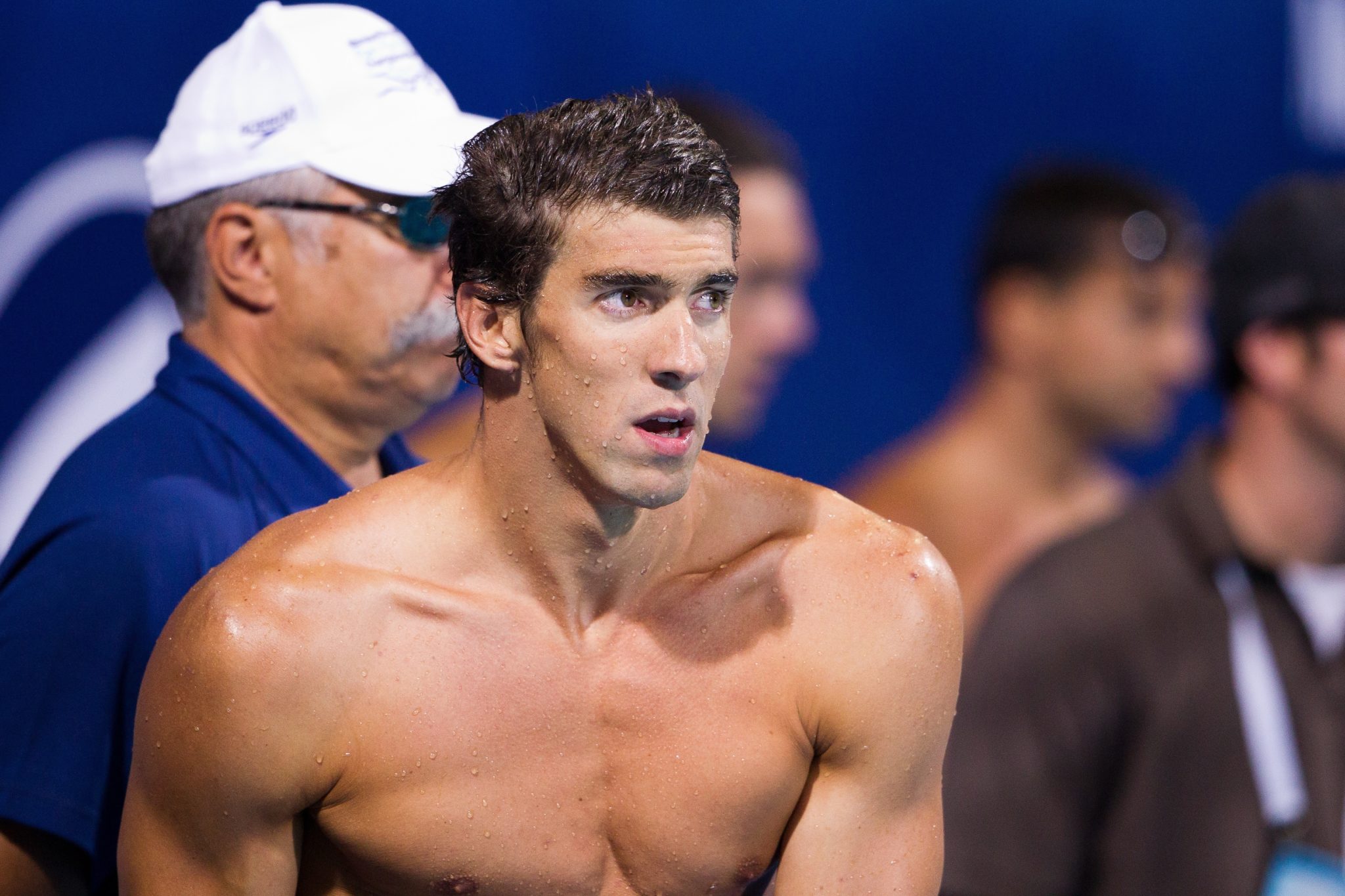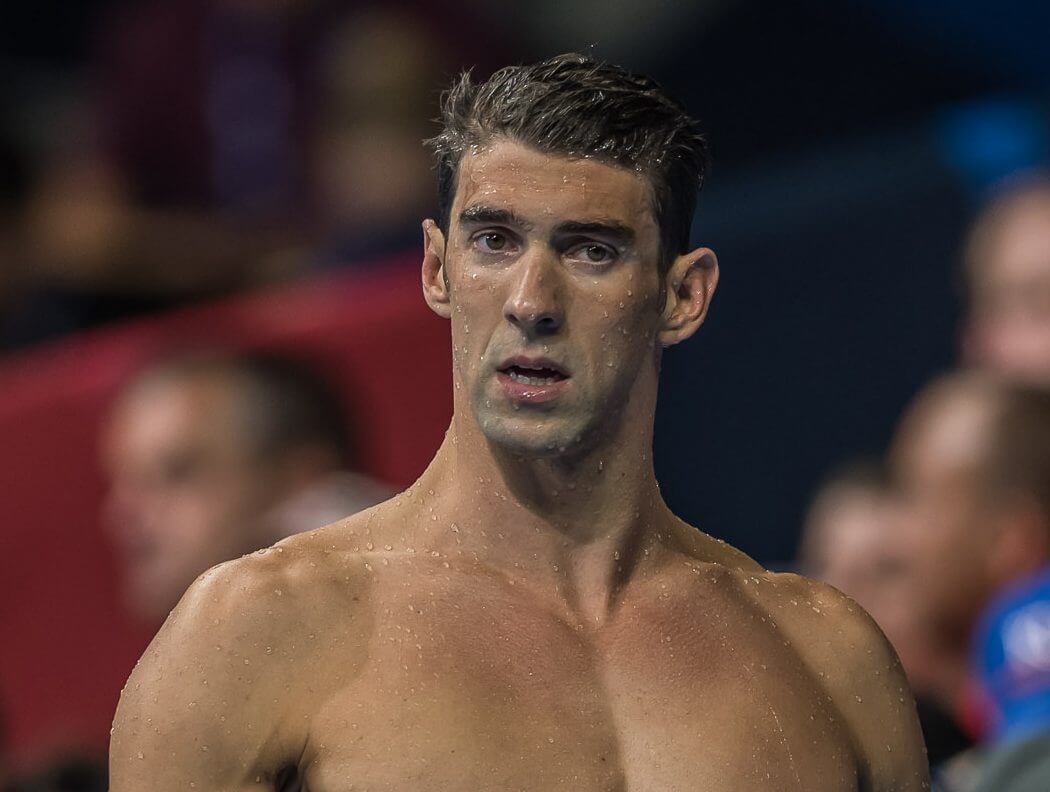When it comes to Olympic legends, Michael Phelps is a name that resonates with greatness. The swimmer from Maryland has shattered records, claimed 28 medals, and left an indelible mark on the world of sports. But have you ever wondered about Michael Phelps' weight and how it influenced his swimming career? Let's dive deep into this fascinating topic and uncover the truth behind the numbers.
Phelps is often regarded as the greatest swimmer of all time, but his journey wasn’t just about talent or training. His physical attributes, including his weight, played a crucial role in shaping his career. In this article, we’ll explore the relationship between Phelps’ weight and his performance in the pool, shedding light on the science behind his success.
So, buckle up! This isn’t just a story about numbers; it’s a deep dive into the life of an athlete who redefined what’s possible in competitive swimming. Whether you're a sports enthusiast or simply curious about the man behind the medals, this article has something for everyone.
Read also:Ultimate Guide To Mkvpoint A Comprehensive Resource For Movie Enthusiasts
Here’s a quick look at what we’ll cover:
- Biography and Background
- Physical Attributes: Height and Weight
- The Impact of Weight on Swimming
- Training Routine and Diet
- Body Composition and Phelps' Success
- Challenges Faced by Phelps
- The Science Behind Weight and Performance
- Weight Management After Retirement
- Inspiration for Aspiring Swimmers
- Conclusion and Final Thoughts
Biography and Background
Before we dive into the specifics of Michael Phelps' weight, let’s take a moment to understand the man behind the legend. Born on June 30, 1985, in Baltimore, Maryland, Phelps was destined for greatness from a young age. Here’s a quick glance at his background:
Early Life and Career
Phelps started swimming at the age of seven, initially as a way to manage his energy levels. By the time he was 11, his natural talent was evident, and he quickly rose through the ranks of competitive swimming. At 15, he became the youngest American male to make a U.S. Olympic team in 68 years.
But it wasn’t just his age that set him apart. Phelps’ physical attributes, including his height and weight, gave him a unique advantage in the pool. Let’s take a closer look at these attributes.
Physical Attributes: Height and Weight
Michael Phelps stands at 6 feet 4 inches (193 cm), which is well above average for a swimmer. But his weight has been a topic of interest for many. Throughout his career, Phelps’ weight has fluctuated, but he typically weighed around 194 pounds (88 kg) during his peak competitive years.
Why Does Weight Matter?
Weight is crucial for swimmers because it affects buoyancy, drag, and overall performance. Phelps’ weight was carefully managed to ensure he maintained the perfect balance between muscle mass and body fat. This allowed him to maximize his speed and efficiency in the water.
Read also:Downloadhubpet Your Ultimate Destination For Entertainment
The Impact of Weight on Swimming
Now, let’s break down how Phelps’ weight impacted his swimming career. It’s not just about the number on the scale; it’s about how the weight is distributed and utilized.
Efficient Body Composition
Phelps’ body composition was tailored for swimming. His long torso, large hands, and flexible joints gave him an edge in the water. Additionally, his weight distribution allowed him to maintain a streamlined position, reducing drag and increasing speed.
Here’s a quick breakdown:
- Long Torso: Provides a powerful propulsion
- Large Hands and Feet: Act like paddles in the water
- Low Body Fat: Enhances buoyancy and reduces resistance
Training Routine and Diet
To maintain his ideal weight, Phelps followed a rigorous training routine and diet. His daily regimen included hours of intense swimming, strength training, and recovery exercises.
The Phelps Diet
Contrary to popular belief, Phelps didn’t consume 12,000 calories a day. While he did eat a lot, his diet was carefully planned to fuel his body for optimal performance. Here’s a glimpse of what his diet looked like:
- Breakfast: Omelets, pancakes, and oatmeal
- Lunch: Grilled chicken, salads, and whole grains
- Dinner: Lean proteins, vegetables, and complex carbs
This balanced approach ensured he had the energy needed for his grueling training sessions.
Body Composition and Phelps' Success
Phelps’ success wasn’t just about his weight; it was about his body composition. His lean muscle mass and low body fat percentage allowed him to glide through the water with ease.
Key Stats
Here’s a table summarizing some key stats about Phelps:
| Attribute | Measurement |
|---|---|
| Height | 6'4" (193 cm) |
| Weight | 194 lbs (88 kg) |
| Body Fat Percentage | 8-10% |
These numbers highlight the importance of maintaining the right balance between weight and muscle mass.
Challenges Faced by Phelps
Despite his success, Phelps faced challenges related to his weight and overall health. Balancing his training with recovery was crucial, and he often had to manage injuries and fatigue.
Overcoming Obstacles
Phelps’ ability to overcome these challenges was a testament to his determination and resilience. He worked closely with coaches, nutritionists, and medical professionals to ensure his body was in peak condition.
The Science Behind Weight and Performance
For swimmers, weight plays a critical role in performance. The science behind it is fascinating, and Phelps’ career is a perfect example of how understanding this relationship can lead to success.
Key Factors
Here are some key factors that influence a swimmer’s performance:
- Buoyancy: The ability to float in water
- Drag: Resistance caused by the water
- Streamlining: Reducing resistance through body position
Phelps’ weight and body composition allowed him to excel in all these areas.
Weight Management After Retirement
After retiring from competitive swimming, Phelps had to adapt to a new lifestyle. Managing his weight became a different challenge, as he no longer had the same training demands.
A New Chapter
Phelps embraced this change by focusing on fitness and mental health. He continues to inspire others through his work as a motivational speaker and advocate for mental wellness.
Inspiration for Aspiring Swimmers
For young swimmers looking up to Phelps, his story is a powerful reminder of the importance of dedication, discipline, and perseverance. By maintaining the right weight and focusing on body composition, they too can achieve greatness.
Tips for Success
Here are some tips for aspiring swimmers:
- Focus on balanced nutrition
- Incorporate strength training into your routine
- Listen to your body and prioritize recovery
Conclusion and Final Thoughts
In conclusion, Michael Phelps’ weight played a significant role in his swimming career. From his early days in the pool to his retirement, he demonstrated the importance of managing weight and body composition for optimal performance.
So, what can you take away from this article? Whether you’re a swimmer or just a fan of sports, Phelps’ story is a testament to the power of hard work and determination. Share this article with your friends, leave a comment, and let’s keep the conversation going!
Remember, the journey to greatness isn’t just about talent; it’s about the choices you make every day. Keep swimming, keep striving, and most importantly, keep believing in yourself!


